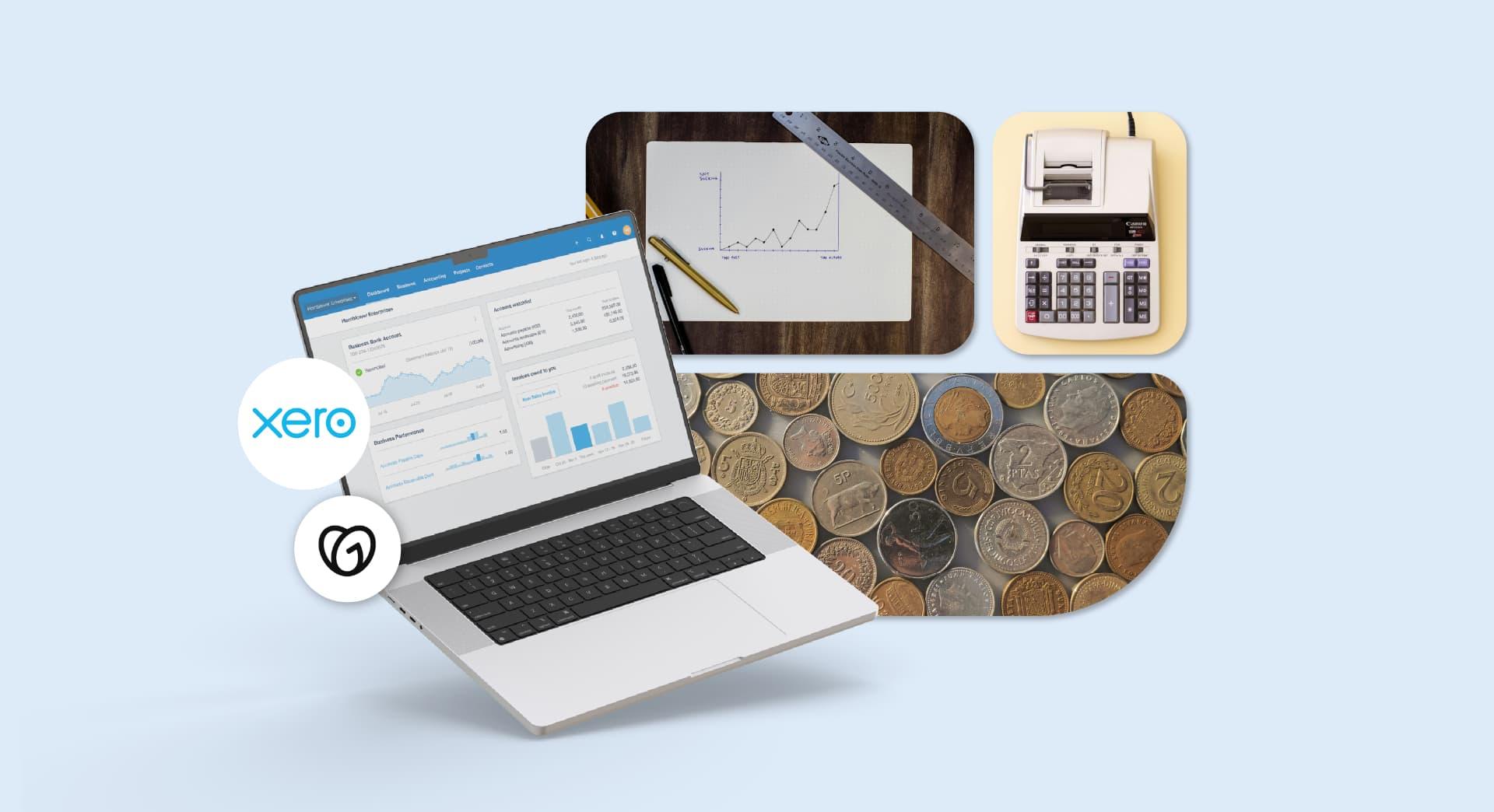Running your own small business can be very rewarding, but it can also be very time-consuming if you don’t have a bookkeeping app handy. Anything that can save you time is certainly worth checking out.
Bookkeeping apps save you time by handling the day-to-day accounting tasks.
They have a range of functions that help you manage your business from a smartphone, tablet or laptop.
Some examples of what they can do include:
- Tracking time spent on a job (best used when billing your clients)
- Creating and sending invoices while you’re on-the-go
- Tracking payments (notifies you when your invoices are paid)
- Managing your cash flow
- Meeting your tax reporting obligations
- Paying your staff and other expenses
‘Bookkeeping’ and ‘accounting’ actually mean slightly different things. But when it comes to apps, these two terms are often used interchangeably.
Bookkeeping is the recording of financial transactions, while accounting is more about the preparation of reports from that bookkeeping information. Accounting also includes the analysis of that information for business decision-making.
For the purposes of this article, we’ll refer to “bookkeeping apps” as the tools that allow you to do both bookkeeping and accounting tasks.
Our top 2 picks for free bookkeeping apps

Free bookkeeping apps tend to have limited functionality and some only have a single function. All of the popular free apps listed below have paid options with more functions available, if you need to upgrade later on.
Read on to see the key benefits for each one and how they can help you stay organised.
1. ZipBooks
ZipBooks has a free starter app that includes basic functions for small businesses and contractors looking for:
- Unlimited online invoicing and quoting
- An online payment facility via PayPal or Square
- Basic financial reports
- Bank account integration
If you're looking for more functions than the ZipBooks starter app provides, they also have three paid plans. Each one comes with more features and progressively costs more.
2. Reckon STP
Reckon STP is a single-function mobile app that can help small business owners with a staff of up to four people.
Its only function is to send single touch payroll (STP) reports to the Australian Taxation Office (ATO).
This is important, since your payroll must be STP-enabled to be compliant with ATO reporting requirements.
6 paid bookkeeping apps to consider

Most paid bookkeeping apps come with a free trial (usually for 30 days), so it makes sense to try before you buy. Below are popular apps that have free trials available, followed by monthly subscription plans if you choose to continue.
Let’s check them out now!
1. MYOB
MYOB has six Australian subscription plans that range from a Starter plan to a Premier plan. Check out some of their key features below:
- As far as functionality goes, MYOB’s Starter and Premier plans are comparable to Xero’s plans in their respective categories.
- The Premier plan also has single-touch payroll and inventory management functionalities.
You also get the ability to try MYOB’s plans for 30 days, which is perfect if you want to play around with the different features.
2. Xero
Xero currently has four paid plans available in Australia: Payroll-only, Starter, Standard and Premium. Here are some of the highlights:
- Their Premium plan has all of the features of the Starter and Standard plans and it allows you to automate your superannuation payments. It also allows you to use multiple currencies.
- The Payroll-only plan is their cheapest plan and only has the payroll function (as the name suggests). Note: If you only want payroll functionality, we recommend using the free Reckon STP app instead.
- Their Starter plan has the general functionality of most of the free apps mentioned earlier, but it also has payroll and bank reconciliation features as well.
The Xero Starter, Standard and Premium plans each come with more features at a progressively higher subscription cost, but it’s worth it if you plan on expanding your business. Try them out for 30 days to see how they work for you.
3. Intuit QuickBooks
Intuit QuickBooks has three paid plans in Australia: Simple Start, Essentials and Plus. They range from low, mid and top-tier plans (respectively). Here are some noteworthy takeaways to consider:
- Like the Xero and MYOB plans, all of Intuit QuickBooks’ plans are available as iOS or Android apps and can integrate seamlessly with a wide range of other business apps.
- They also have secure cloud storage, which means you’ll never have to worry about losing crucial financial data for your business if your computer crashes.
Try their free 30-day trial to scope out the plan you like. You might find it makes a world of difference to your business operations.
4. Sage
Sage works best for businesses that only want to pay for features they’ll use. While it only has one mid-range Australian subscription plan available, you can purchase a range of optional add-ons to enhance the functionality. Check out the benefits below:
- The optional add-ons are good if you want to roughly match the features of Xero, MYOB and QuickBooks’ top-tier plans.
- Sage also offers a cloud-based solution to managing your invoices, accounts and payments.
You can try it free for 35 days to play around with the different features and see if they’re right for your business needs.

5. Saasu
Saasu has three Australian subscription plans: Small, Medium and Large, each of which reflect their functionality and pricing. Let’s take a look at some of their highlights below:
- The Small plan is better suited for a sole trader or start-up with zero to minimal staff, and has more functionality than any of the free apps we’ve discussed.
- The Medium plan may be suitable if you’re a growing business with up to 20 staff.
- The Large plan better suits the diverse needs of larger organisations with up to 40 staff members.
Saasu has a 30-day free trial. You can use any of their plans during that time to decide which one is best for you.
6. Reckon One
Reckon One has four paid subscription plans to complement their free Reckon STP app in Australia. They include: The Basics, Essentials, Pro and Premium. Here’s what we valued the most:
- It’s easy-to-use and one of the most affordable plans on this list.
- Their technical support services help with any troubleshooting issues you may have.
The most appropriate plan will depend on your business needs, but we recommend utilising their 30-day free trial to get started.
The bottom line
There’s a huge range of bookkeeping apps on the market. Some are free and some you have to pay for.
Although paid bookkeeping apps have more features, that doesn’t necessarily mean you should get one. It really depends on what functions you need.
If you can get by with a free app, go for it! If not, the benefits of a paid app should outweigh the costs.
Either way, you should find that using an app is much easier and saves more time than doing your books manually or by using a spreadsheet.






